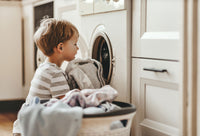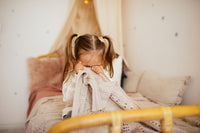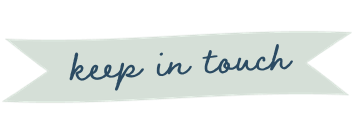By Michelle Mady
Fall brings thoughts of pumpkin spice everything, changing colors, cooler temps and a sense of renewed structure. Unfortunately, it also brings along a sense of dread as the school year gets closer. Do I have all of the right school supplies? Are they signed up for after-school care? Who is dropping off every day, and are we still in that carpool? Are they ready for the next grade?
And these are concerns for parents who have done the “back to school hustle” a time or two. Now, what about the first timers?
We hear so much about Kindergarten Readiness, what that means and how to prepare our children for that first fully academic experience. But what about preschool? Are there things we can do to prepare our children for that play-based experience? And isn’t preschool meant to prepare them for school: do we really have to prep for the prep year?
But what about preschool? Are there things we can do to prepare our children for that play-based experience? And isn’t preschool meant to prepare them for school: do we really have to prep for the prep year?
As a young preschool teacher, many of the children who enter my room have never been in a group care or school setting before. Although play-based learning needs no preparation, there are a few things you can do with your child to ensure they are ready for preschool.
Hand Washing
Two- and three-year olds are not great, generally, with personal hygiene tasks. However, hand washing is typically the first thing a child needs to do when arriving in the classroom … and about 30 other times during the day. Children will often get soap on a hand, then rinse it off quickly, without any real cleaning happening.
Teaching your child how to wash their hands, or at least adding a “scrub” step to the process, helps your child be more confident in this routine part of their day. It also allows for them to feel comfortable with the task and helps the teacher to be able to support your child without having to spend a lot of precious time on hand-washing techniques.
Snack Support
Can you child open their own snacks? Do you have a super fancy lunchbox that even adults have a hard time closing? Does the water bottle leak unless closed just right? These are all things that can really effect a child’s day, especially in a new environment. Cute food containers can be so much fun to buy, but how practical are they?
Reusable zipper pouches are great and easy for even the least dexterous two- or three-year old. Lunch boxes and water bottles that don’t need to be lined up JUST RIGHT are key. And don’t forget weight! Your child will have to carry these items in a backpack, so the amazing insulated water bottles may be great for a hike, but not so great for school.
Once you have those supplies in order, practice helping your child open and close them. Teachers are there to support in these times, but with a class of 20 children, even having them attempt to do it themselves is so helpful.
Verbal Cues
We don’t expect two- and three-year olds to share. We don’t expect them to know to use their words, ask for turns, or look to teachers for support in the first few months. So how to we ensure their needs are being met while minimizing (notice I didn’t say eliminating) tantrums and big emotions?
So how to we ensure their needs are being met while minimizing (notice I didn’t say eliminating) tantrums and big emotions?
Preschool teachers will give children quick, easy phrases to use. “Help Please,” “My Turn” and “Need Space” are the three key phrases I teach in September. Not only will this let us know what a child needs, it also is a cue that the child needs some support and we can intervene before those big feelings come to a boil. Teaching your child a few clear, concise verbal cues can support their needs within their new classroom.
A preschool teacher will support children in all areas of the day, increasing social and emotional development and well being as well as cognitive and motor development. However, you can give your child a head start on the transition by supporting them in these areas, so they can get right into the play based experiences that becomes the foundation for all other learning.
-
About the author: Michelle is a mom of 5 children ranging in age from 5 to 15. As a toddler and preschool teacher, she shares experiences, activities and guidance to other parents, as both a parent and as a professional early childhood educator, at any stage of their parenting journey.
Photo credit: iStock.com/FatCamera




